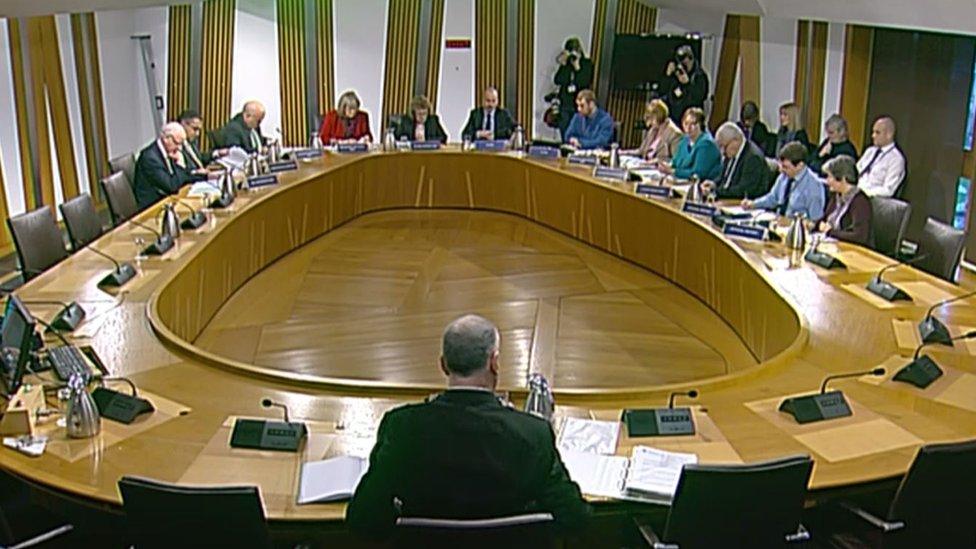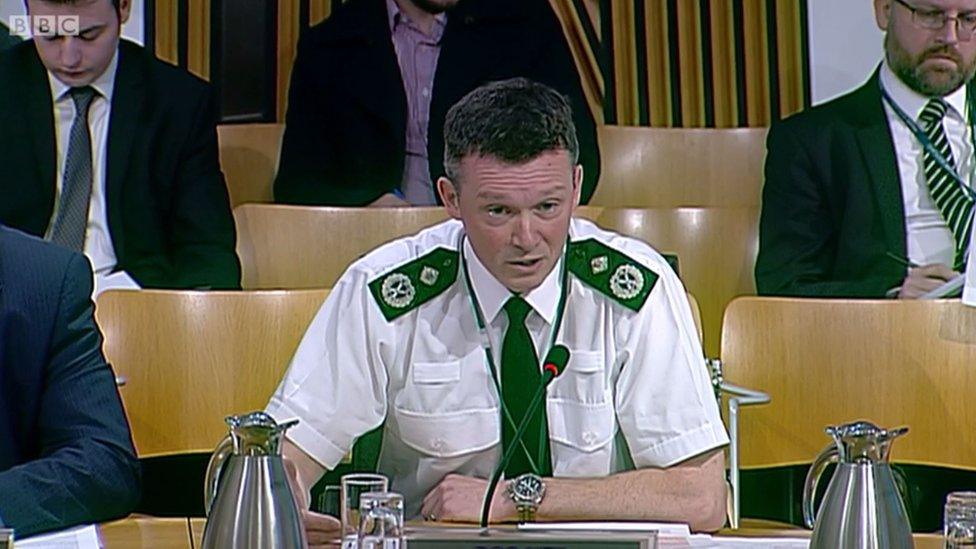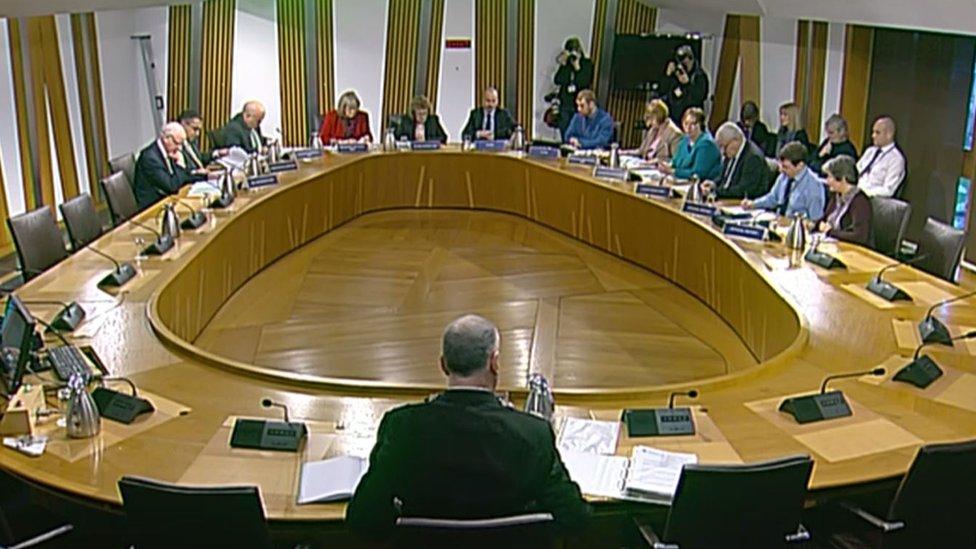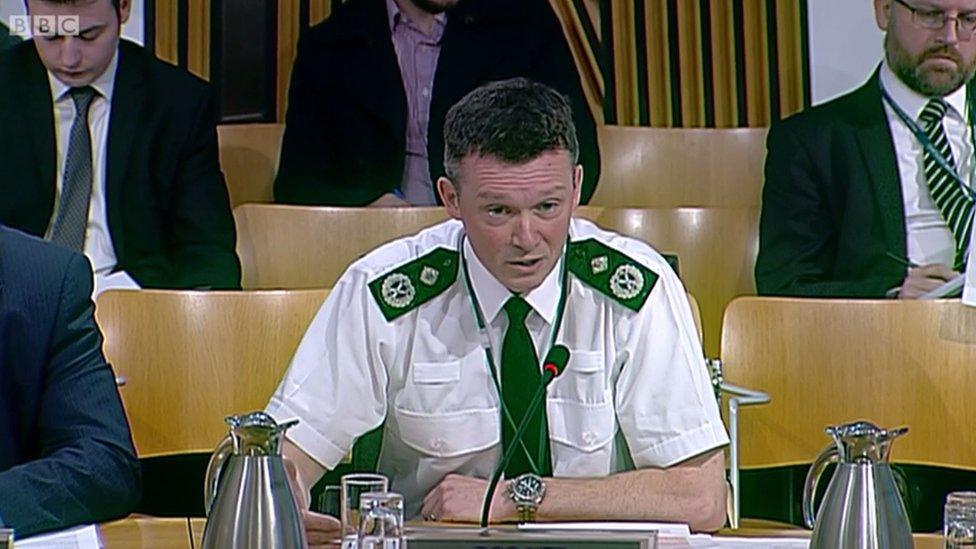Police spying row officer 'was not aware' of new code
- Published

Police Scotland was found to have breached guidelines in applications to access communications data
A Police Scotland officer named in a Holyrood investigation of spying rule breaches has told MSPs she was "not aware" of the new code.
Det Insp Joanne Grant submitted written evidence to the justice committee via her solicitors.
She said she was "not aware" of a new code of practice at the time she authorised communication interceptions.
Four officers were named as part of the investigation, three of whom have declined to attend Holyrood in person.
The committee, which has heard from senior officers about the case, has the power to compel witnesses to appear.
MSPs launched their investigation after the Interception of Communications Commissioner ruled Police Scotland had broken new spying regulations by obtaining communications data without getting judicial approval.
Senior officers have previously appeared before the committee to given evidence about the case, which involved officers attempting to determine details of a journalist's sources.
Named officers
Four officers were named as part of the inquiry: Ch Supt Clark Cuzen, Det Supt David Donaldson, Det Supt Brenda Smith and Ms Grant.
The committee wrote to each of them in person after Police Scotland and the Association of Scottish Police Superintendents declined to put them forward.

Holyrood's justice committee has been investigating police breaches of new spying regulations
Ms Grant submitted evidence to the committee via her solicitors, while the other three officers wrote back declining to appear in person.
In her written statement, Ms Grant said she granted "two authorisations in respect of two telecoms accounts relating to two persons of interest in an ongoing inquiry regarding disclosure of sensitive information to the media".
This happened on 1 May 2015, and Ms Grant said at that point she was "not aware of the new Code of Practice" which had been introduced on 27 March.
She noted that the two inquiries she authorised "ultimately produced nothing of evidential value or interest", and said she had "no further information" she could usefully add.

DCC Neil Richardson has told MSPs the breaches were due to a "misjudgement"
The Interception of Communications Commissioner report said officers had failed to get judicial permission on five occasions.
It is understood the case relates to the police inquiry into the 2005 murder of Emma Caldwell, after a re-investigation was ordered last year.
MSPs earlier heard from Deputy Chief Constable Neil Richardson, who said Mr Donaldson had "misinterpreted" a 22-day-old code of practice.
Mr Richardson said the "pace the new guidance came into being was very aggressive", noting that this may have been a factor in the "errors" made.
'Reluctant to attend'
In his reply to the committee, Mr Donaldson said he wanted to assist MSPs but was "reluctant to attend and assist at this time".
He said the Investigatory Powers Tribunal were now conducting an investigation in which his evidence could be "key".
Mr Donaldson conceded he had been responsible for "authorising applications which...were contraventions of the code of practice", but said he "would not wish to speak publically" about the case in case it could affect the tribunal process.
Mr Cuzen similarly said he might "place myself and others at detriment by providing evidence in a public forum" while the IPT investigation was ongoing, while offering to answer questions via letter.
Ms Smith said she had a "prior commitment" on the date the committee next sits, 2 February, and was thus unable to attend. She said she had provided a "factual record" to Police Scotland and the Interception Commissioner.
- Published14 January 2016

- Published15 December 2015

- Published25 November 2015
